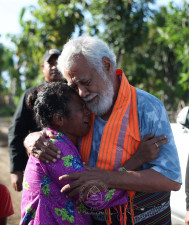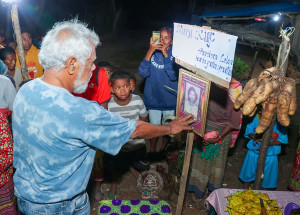The Prime Minister, Kay Rala Xanana Gusmão, made an official visit to the Special Administrative Region of Oe-Cusse Ambeno (RAEOA) between April 28th and May 2nd , with the aim of promoting direct dialogue with the population, monitoring the implementation of priority infrastructures and socializing the strategy of administrative decentralization and the creation of representative bodies of local power in Timor-Leste, the implementation of which is being prepared. 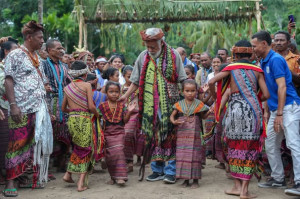
On arrival, the Head of Government was welcomed by the regional authorities and members of the Sakato border community. During the week, he visited various RAEOA administrative posts and villages, including Sabén, Usapikolen, Pasabe, Tumin, Lelaufe, Bebo and Maunaebeno, where he held several dialogues with the local population. 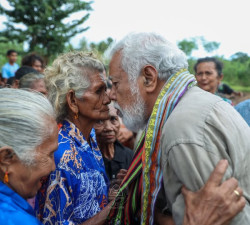
Among the main issues discussed was the policy of administrative decentralization, which has four priority objectives, explained the Prime Minister, ‘to develop the private sector in rural areas’, ‘to promote strong, legitimate and stable state institutions throughout the territory’, ‘to create new opportunities for democratic participation’ and ‘to ensure more effective and efficient provision of public services to citizens. The Head of Government called for the mobilization of local intellectuals to ensure that the implementation process is well prepared and meets the needs of the population. ‘Independence is worthwhile when young people study and become wise to commit themselves to serving the country,’ he said during a meeting in Pasabe. 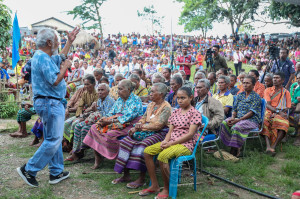
During his visit, Prime Minister Xanana Gusmão also observed the progress of rural road rehabilitation projects in Sabén and Bobometo, emphasizing the importance of infrastructure as a basis for development. ‘The road is the foundation for development that people need the most,’ he said. In the same path, he asked the RAEOA Authority to draw up the project to build the Noel-Ekat bridge, identified as a priority for improving mobility in the region, especially during the rainy season. The rehabilitation of the 17-kilometre road linking Pante-Makasar to Oesilo is also underway. 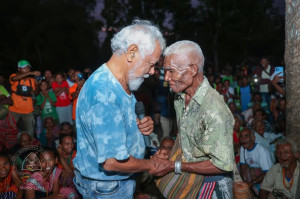
The agenda also included a visit to the construction site of the John Paul II Church in Passabe and an invitation to the traditional group Usitako Tebedai to represent Atoni culture at the next Asian Portuguese Community Conference (APCC), which will take place in Dili at the end of June. ‘I ask you to show the richness of your culture at this conference,’ said the Prime Minister. 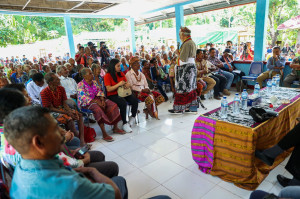
In a dialogue with the Abani community, the Head of Government reaffirmed Timor-Leste’s position on the delimitation of the border at Naktuka, based on the treaty signed between Portugal and the Netherlands in 1904. ‘We will follow the border agreement between the Netherlands and Portugal,’ Xanana Gusmão assured, calling on the Atoni people not to listen to rumors and to focus instead on the joint effort to develop Oe-Cusse. 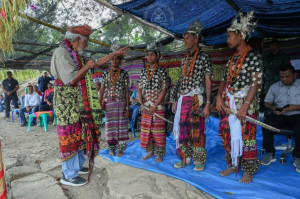
The Program of the IX Constitutional Government states that ‘to achieve full sovereignty, Timor-Leste must complete the definition of land and sea borders with Indonesia, in accordance with international law, as a national priority.’
Also, according to the Government Program, the effective participation of society and communities in the development process of their regions is the determining factor in achieving concrete benefits in their lives, contributing to responsible, transparent and sustainable socio-economic and cultural growth. 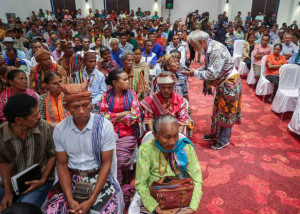
Based on these principles, the Executive will continue to invest in the regional governance structure, through innovative policies and betting on this new development paradigm based on the social market economy. END 